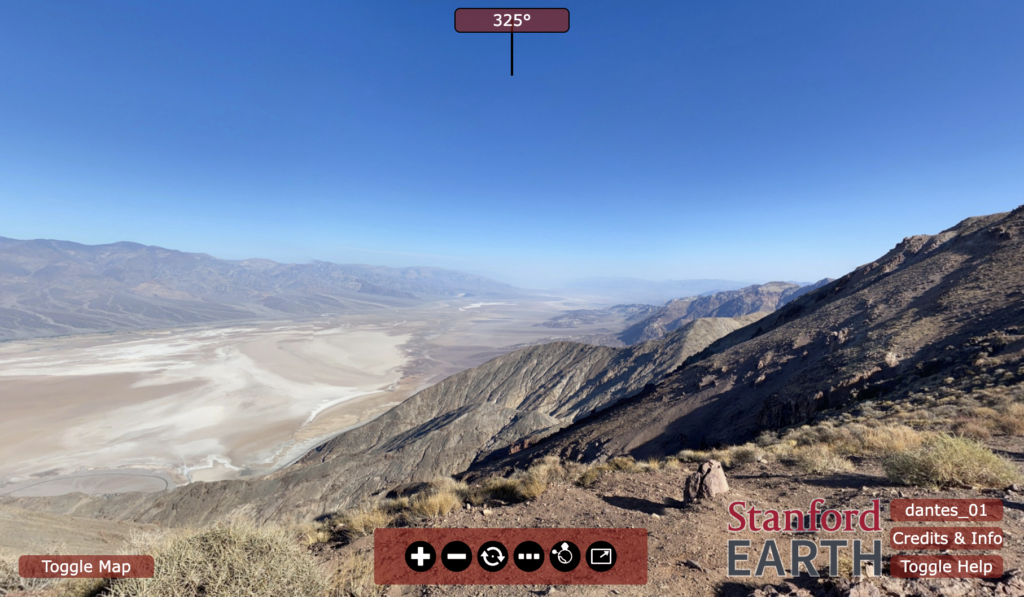Overview
Virtual field trips (VFTs) can take a variety of forms, but at their core, they enable learners to engage with a location, often without physically traveling there, in a digitally mediated way. VFTs can broaden access to locations and experiences and may help mitigate inequities due to cost, accessibility, or inclusivity. Advances in technology have reduced the barriers to creation, opening opportunities for educators and students to become content creators, embedding concepts in locally or personally meaningful contexts.
The science and design behind how to structure activities to create engaging and effective virtual field trips is lagging behind technology growth. Virtual field trips have the potential to support learning by increasing learner connectedness, whether to the land, to a phenomenon, or to other people. This program aims to explore and promote the use of virtual field trips for supporting meaningful learning.
Faculty leads

Dan Schwartz
The Halper Family Faculty Director, Stanford Accelerator for Learning and Faculty Director, Digital Learning Initiative

Bryan Brown
Professor, Graduate School of Education
Research team
Kristen Pilner Blair
Director of Research, Digital Learning Initiative
Keith Bowen
Director, Learning Design Challenge
Catherine Chase
Research Director, AI + Education
Doris Chin
Senior Research Scholar, Graduate School of Education
Ryan Petterson
Director of Field Education, Doerr School of Sustainability
Ana Saavedra
Postdoctoral Scholar, Graduate School of Education
Joe Sherman
Digital Media Producer, Graduate School of Education
Kendra Sobomehin
Doctoral Candidate, Graduate School of Education
Reuben Thiessen
Project Management Specialist, Stanford Accelerator for Learning
Wilson Wang
Assistant Director of Data Science & Cloud Architecture, Graduate School of Education
Josh Weiss
Director of Digital Learning Solutions, Graduate School of Education
Rachel Wolf
Social Science Research Scholar, Graduate School of Education
In action
How virtual field trips work
Virtual field trips offer unique affordances to expand access to locales, capture sense of place, and foreground agency within an experiential learning environment.
Resources for educators
Helping Students and Educators to Create VFTs
The Stanford Accelerator for Learning is developing resources and frameworks to support practitioners and learners to create and share their environments through virtual field trips.
We are finding that engaging with and creating their own virtual field trips can help students see science as more relevant to themselves and their communities, and support rich learning opportunities. In collaboration with elementary, middle, and high school teachers and informal educators, we are developing lesson plans, templates, models, and guides to support effective creation and sharing of virtual field trips.
Developing Science Instruction Modules for Teachers
Our team works to create, study, and share models of virtual field trips that educators can integrate into their curriculum, advancing rich and responsive science education. We are developing and studying ways virtual field trips can be incorporated in to science curriculum, including:
- Next Generation Science Standards-aligned modules that can be incorporated into high school classes
- Modules for teaching college-level geology that will be empirically tested at Stanford and made publicly available to instructors everywhere.
- Models of integration with in-person field experiences to reduce anxiety when used as preparation and support feedback when used post trip.
Funding opportunities
To catalyze Stanford’s interdisciplinary expertise to advance research, creativity, and implementations of virtual field trips as a way to provide rich digital experiences that go beyond traditional “textbook” content, we fund VFT research and design projects.
To date, we have funded 14 proposals representing 6 of Stanford’s 7 schools. Through this work we are developing a community within Stanford interested in advancing learning through virtual field trips, and we are learning about new models for teaching and assessing with virtual field trips in domains ranging from ecology to civil engineering to music.

The Science and Design of Virtual Field Trips
Explore a virtual field trip
Fourth grade students from High Tech Elementary North County created a virtual field trip to teach others about the geology of their local county parks. Click the blue arrows to explore.